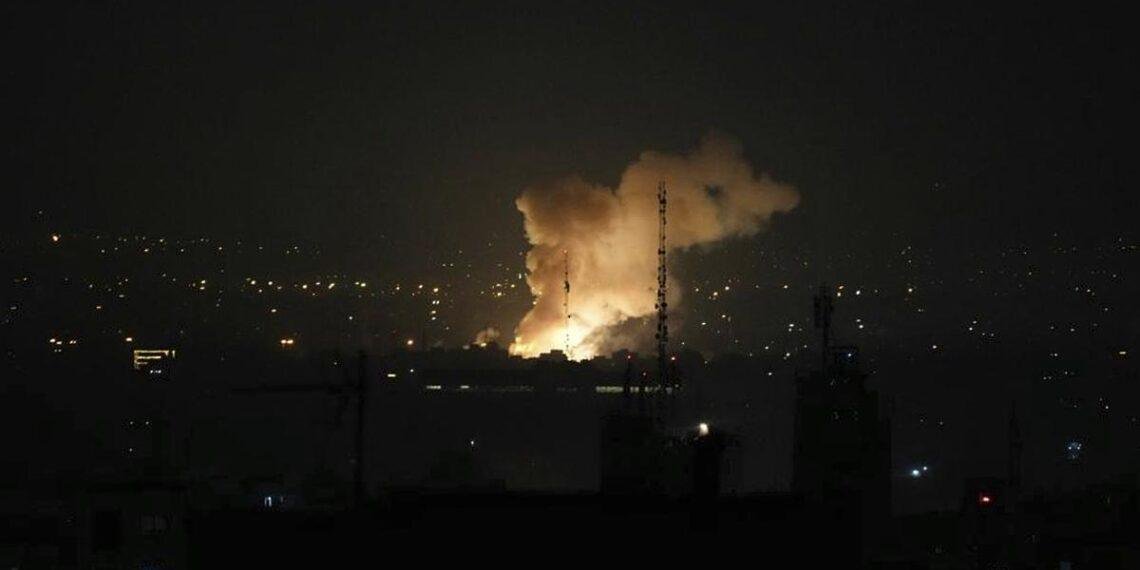The ongoing crisis between Israel and Iran has put a halt to most global sports activities as the conflict intensifies daily, between both nations over nuclear dispute.
Israel has declared a state of emergency lasting until June 30, and with air travel suspended, many of the country’s top athletes and sports teams are facing disruptions ahead of their competitions while others are caught in the crossfire of the war.
On Friday morning, 27-year-old Iranian professional paddle tennis player Parsa Mansour was asleep in his home in Shahrara, a crowded area in northern Tehran, when an Israeli missile struck nearby.
The explosion shattered windows and debris fell on him, resulting in his immediate death. His parents, who were in the adjacent room, luckily survived the incident.
“Parsa was always laughing and joking,” said his best friend Saman. He mentioned that Parsa was a self-taught athlete who trained independently without a coach.
“When I saw the Tennis Federation’s announcement about his death, I was in disbelief. I went to his home, and it was in ruins,” Saman recalled.
In addition to Mansour, two other Iranian athletes have lost their lives in recent Israeli air and drone strikes as tensions between the nations escalate.
Helena Golami, a professional karate athlete from Lorestan province, and Rouhollah Salek, a national-level boxer from Alborz province, were reported killed in the attacks, according to Iranian officials.
Following Golami’s death, the Iran Karate Federation honored her as a martyr and expressed profound sorrow over her loss.
Similarly, the Iranian Boxing Federation confirmed Salek’s death, condemning the strikes as “barbaric” and offering condolences to the sports community, citizens, and the families of the deceased.
Salek is now the third Iranian boxer to die in recent days due to the Israeli offensive, following the deaths of Sayed Ali Baghernia from Lorestan and Reza Bahrami from Kermanshah.
Also, Inter Milan forward Mehdi Taremi is unlikely to participate in the FIFA Club World Cup as he remains stranded in Iran after Israel conducted eight days of airstrikes on the country.
The 32-year-old striker has been unable to leave Tehran since Iran closed its airspace amid escalating military tensions with Israel.
Read also:
- US asks China to stop Iran from closing Strait of Hormuz
- Bayern beat Boca 2-1 to seal Club World Cup last 16 spot
- Fer Lopez joins Wolves in £19 Million transfer from Celta Vigo, eyes Premier League breakthrough
Taremi had recently scored for his national team in a World Cup qualifier against North Korea and was set to join his club in Los Angeles.
However, following Israel’s airstrikes on military and nuclear sites in Iran early Friday morning, all flights were canceled.
The situation has since escalated into a full-blown conflict, with both sides exchanging rockets and airstrikes.
Now, Taremi is stuck at home with his family just days before Inter begins their campaign against Monterrey at the Rose Bowl in Los Angeles on Tuesday.
The crisis has impacted not only Iranian athletes but also Israeli athletes, some of whom have been unable to compete in tournaments.
The situation has affected both athletes from both countries, with certain individuals unable to participate in competitions.
As this war escalates fears are hitting boiling point on how these will affect Nigeria and Africa sport activities.
There have been predictions that the global oil price might skyrocket due to the war, will will effect affect cost of fuel and transportation that can disrupt logistics arrangements for sports activities in Nigeria and Africa
Speaking on the impact of the conflict on Nigeria, an expert in economics and international affairs and adjunct professor at the University of Ibadan, Professor Tayo Bello, warned that the conflict will hit Nigeria with both opportunities and serious challenges.
He said that while Nigeria, as Africa’s largest oil producer, stands to benefit from increased oil earnings in the short term, this may come with a heavy cost for Nigerians at home.
“The war is like a double-edged sword for Nigeria,” Professor Bello said. “On one hand, the global price of crude oil is expected to rise sharply. This means more revenue for the country, especially if prices climb from the current $75 per barrel to $90 or higher.
“Higher oil prices mean higher fuel prices locally,” he explained. “Diesel, petrol, and other essentials will become more expensive, pushing inflation upward.Green job opportunities
This will affect everyday Nigerians and businesses alike.”
Due to the current situation, many African countries are uncertain if the turmoil might have a significant adverse impact on the movement of Nigerian and African athletes are capable of disrupting sport programmes and activities as the conflict continues to escalate.






